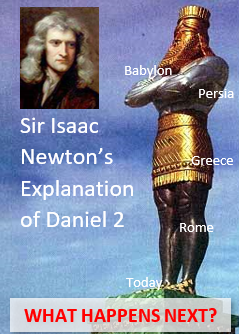Keys to Truth
To know Truth, there are essentials without which we can be easily misled. Here are a few of them:
Determine to earnestly seek truth above everything else.
Truth comes at a cost. Are we willing to believe and to live by the truth even if it may cost our comfort, our reputation, or even our lives? If truth exists that is disagreeable to us, would we recognize it as truth, or would we shrug it off because it might cost us something we hold more dear than truth itself?
Live according to the truth you already understand.
Knowing the truth and living by the truth go hand in hand. We need to live according to the truth we already understand and resolve to continue to do so as further truth opens to our understanding. It is part of the human psyche (we believe God given) that we are uncomfortable living contrary to what we believe to be the truth, and we will either seek to bring our lives in harmony with the truth, or we will argue away and close our minds to the truth in order to reduce this tension. Those who love the truth, will seek to do the former.
"Truth should never be buttressed with falsehood."
Be honest.
Slander, misrepresentation, concealing of evidence, etc. have no place in the search and promotion of truth. It should be alarming to everyone who values truth that these practices are increasingly being promoted in the world today. We are increasingly being taught that it doesn't matter how you win the debate so long as you believe your cause is good and you win. However, even slandering those whom we believe are wrong is disastrous because it creates an intellectual climate in which falsehood is considered an acceptable manner to combat falsehood. It should be obvious that this leads to a condition in which we can no longer believe anything from anyone because even those we regard as "champions of truth" are increasingly considering it ok to combat misinformation with misinformation. This trend, if it continues, can do nothing other than to lead society to a very dark place.
Another common mistake, especially when engaging with a person defending a different view, is to momentarily see the invalidity of a pet argument in favor of one's own view, but then because not all of the objections to the converse position have been answered, to use the very same invalidated argument at the next opportunity. This propensity is expected from the careless but not from those striving to seek for and to promote the truth. Truth should never be buttressed with falsehood nor with obstinant ignorance. Those in the pursuit of truth will strive to be consistently honest with themselves and with others.
"We submit that the bias in favor of value and purpose...is a good one..."
Don't be ashamed to favor purpose.
Before going further, we should be clear that we do not believe that it is necessary to begin with a bias in favor of a transcendent God and purpose in order to come to the conclusions that we have. There are many, including highly trained scientists and philosophers, who have come to believe in an intelligence behind the universe even though they had been very biased against the existence of God. They cite the scientific evidence and reason as key factors that led them to change their minds.
That said, those of religious persuasion are often criticized because it is claimed that their religious belief blinds them to the "truth" espoused by those who believe there is no God. In the analysis of evidence, it is thought that we should divorce from consideration all thought of how any interpretation of the evidence may threaten ones own worldview. It is assumed that this will result in a more objective study and thus will be more effective in the search for truth.
The desirability, and even the honest feasibility, of this approach is questionable. The desirability because what we believe on certain issues can greatly impact how we view ourselves and our relationship to the world and universe around us, and can potentially have a disastrous impact on our view of the significance of our own lives and the lives of others. There is good reason to be reluctant to hastily accept a destructive conclusion just because the evidence of the moment may seem to favor it.
The feasibility of such an approach is questionable because of the innate difficulty or impossibility of humans to be entirely objective. When humans think they are being entirely objective, that is likely when they are the most unconscious of the personal biases that factor into their conclusions. Being forthright about our biases enables us to be more objective than if we are not.
"Those who deny having any biases are more likely to be blinded to evidences which contradict their biases."
We submit that the bias in favor of value and purpose that transcend our fickle and conflicting opinions is a good one, and further, that no one should be faulted for this bias if honestly attempting to be just as candid with the difficulties as with the strengths of the evidence as it pertains to this bias. An honest admission of this, or of any, bias serves as a safeguard to alert the conscientious investigator to pay even closer attention to evidence that might otherwise escape notice because it doesn't seem to fit expectations. Those who deny having any biases are more likely to be blinded to evidences which contradict their biases. Learning to recognize and admit our biases, and then using this recognition to perpetually remind ourselves to add diligence not to be blinded by our biases (at least to the best of our ability), is critical to intellectual honesty. Note that intellectual honesty doesn't necessarily require our opinions to immediately change with the shifting flow of evidence so long as we are willing to admit the challenges to our opinions and we strive to be honest with ourselves in critically evaluating the reasons—including the reasons for our convictions and preferences—for maintaining our opinions.
Ask God to teach you
If truths transcending the physical material and forces of the universe exist, it is clear that these cannot be attained through the mere interplay of the neurons of the brain alone. We need help from that which is itself transcendent—the God of creation. Fortunately, God is eager to provide this help, even for those who are uncertain whether or not God exists! It is the work of God's spirit upon the mind that gives us a desire for a truth bigger and grander than ourselves in the first place (Psalm 19:1-4, Matt. 16:17, John 6:44-45, Romans 10:17-18, and 1 Timothy 2:4). God created the intellect and respects intellectual caution, although we do need to take care that we don't mistake obstinate disbelief for intellectual caution on account that believing may cost us something we prize more than truth itself.
We encourage you also to take another look at the Bible—no kidding! If there is a God who actually cares for us, it stands to reason that He has communicated with humans over the ages. The ancient nature of the Bible is often asserted as evidence that it can hardly be relevant for us today in the 21st century; but its very antiquity places it in an arena with very few competitors for being the revelation of a God who—historically and presently—interacts with humankind, if we are willing to consider the possibility that such a revelation may exist. (See The Ancient Book).
Some feel a need to set immediately to the task of determining whether or not the Bible is 100% trustworthy; however we do not encourage this approach. Study the Bible to find truth, and then accept what is made plain. Ask God for light, and be assured that He doesn't mind if, with humble sincerity, you add "if you exist" to your request. There may be things in the Bible that you may feel to be not true or to even be contradictory. It is not our intention here to discuss whether or not there may be discrepancies in the Bible. However, we have found that as we persist in our study of the Bible, many apparent contradictions resolve themselves and we have become more and more amazed by the harmony within its pages.
Page last modified: 2025.12.08

The Pursuit of Truth
Can the aggregate of neurons we call the brain know what Truth is?
What Sir Isaac Newton had to say about one of the most iconic prophecies of the Bible

God doesn't make sense, unless...
5 considerations that help get God off the hook.
Evidences for God
4 evidences that God exists.

